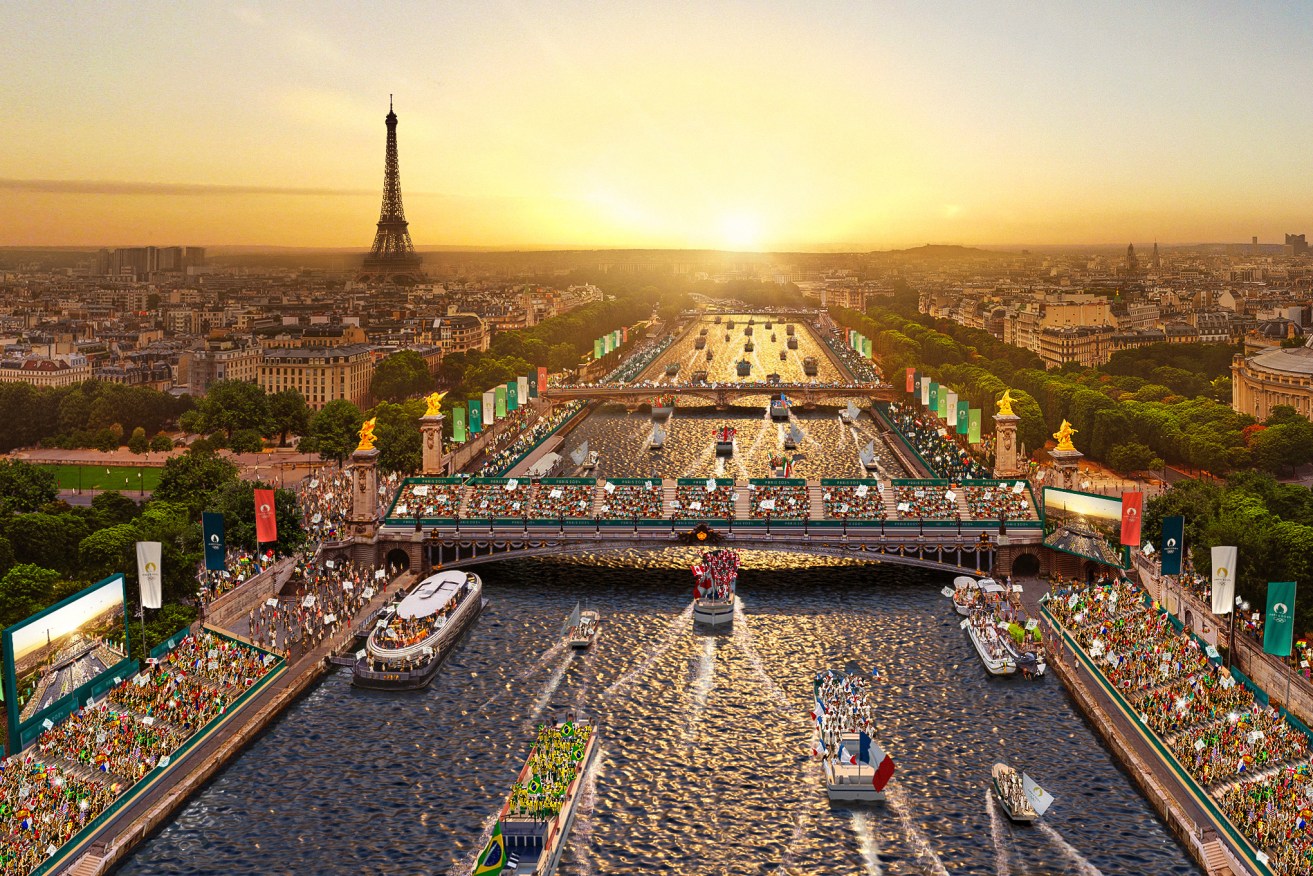Paris Olympics organisers take an axe to opening ceremony – and why that’s good for us
Australia’s Olympic team chief says a scaling down of the opening ceremony for the Paris Games is a positive as French authorities grapple with security concerns at the open-air event.

A rendered image of Paris with the Eiffel tower and the Seine river during the opening ceremony of the Paris 2024 Olympic Games on July 26, 2024. (Paris 2024 via AP)
Paris Olympic organisers initially planned a grandiose opening ceremony along the River Seine attended by 600,000 people, most watching free of charge from riverbanks.
But that crowd number has been slashed with the French government this week saying no tourists or ordinary Parisians would be able to watch the ceremony for free.
Of the reduced crowd, 104,000 will be paid ticket holders along the lower riverbanks with another 222,000 watching for free from upper banks, France’s Interior Minister Gerald Darmanin said on Tuesday.
But those watching for free will be invitation-only with spaces not available to the public via open registration as earlier envisaged.
The free access to the ceremony will allocated by quotas to select residents of towns or regions hosting Olympic events, local sports federations and others chosen by organisers.
Australia’s chef de mission Anna Meares says it’s the first time in Olympic history that an opening ceremony won’t be held inside a main stadium.
“There’s still lots of things on the table, and understanding that an opening ceremony on the River Seine is the first of its kind so obviously the magnitude is enormous,” Meares told reporters in Sydney on Thursday.
“It would be great if they could pull it off because of the spectacle that it will offer to the masses of people who love a look … and the security element of that obviously is something to consider.
“So the fact that they’re making adjustments I think is actually really positive.”
Australian athletes will be among the thousands of competitors parading through the heart of the French capital on boats along a six kilometre route on the Seine.
About 2,500 foreign police will be among 45,000 security force members deployed around Paris for the event, the French government’s Darmanin said.
French intelligence services haven’t identified a specific plot targeting the Olympics.
But Darmanin said there were multiple potential threats including from Islamic extremist groups, environmental activists and ultra-right groups, as well as cyberattacks from Russia or other adversaries.
Meares said security plans would continue to evolve ahead of the July 26 to August 11 Games.
“Security obviously is our highest priority when we’re planning and organising for our Australian team going to Paris,” she said.
“And we know that the French government and the Paris Organising Committee have taken on an enormous undertaking with the Olympics.
“We know France and Paris and put on big events before and they’ve done it successfully.
“And the planning is a continual moving puzzle piece in terms of security going forward … we’re constantly updated and continue to be updated daily.”












